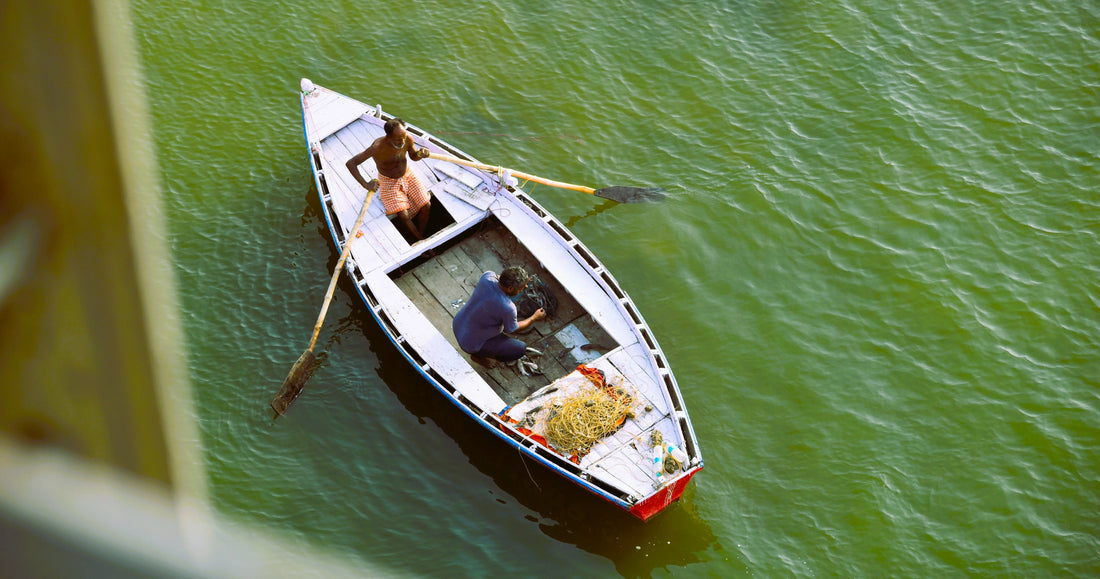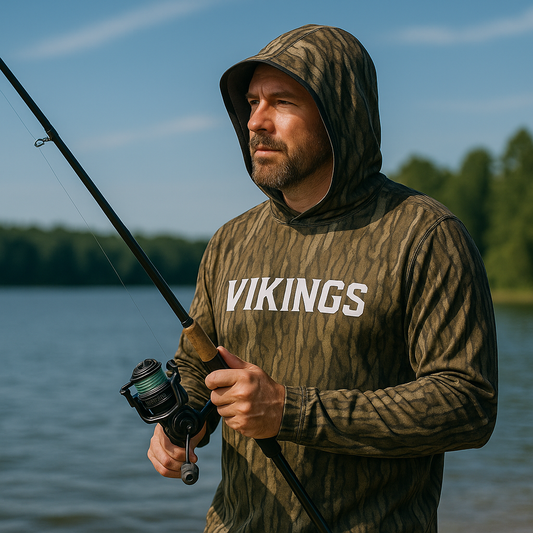
What is the History of Fishing?
Share
The history of fishing is deeply intertwined with the evolution of human civilization. Fishing is one of the oldest and most fundamental ways humans have sourced food from bodies of water, dating back thousands of years. The practice of fishing can be traced back to prehistoric times, and it has played a significant role in shaping the development of various cultures and societies around the world.
Prehistoric Fishing: The origins of fishing can be seen in the archaeological evidence found at various prehistoric sites. Early humans living near bodies of water likely observed animals catching fish and began to mimic these behaviors. Evidence of fishing tools, such as sharpened sticks, spears, and nets, dates back tens of thousands of years. The fishing methods at this stage were likely simple and aimed at catching fish close to the shore or in shallow waters.
Ancient Fishing: As human societies evolved, fishing took on greater significance as a reliable food source. In ancient civilizations like those of Mesopotamia, Egypt, and China, fishing became more organized and systematic. Advanced techniques, such as the use of fishing boats and traps, emerged to catch larger quantities of fish. In ancient Egypt, the Nile River played a vital role in providing abundant fish, and the practice of fish farming, or aquaculture, also began to develop.
Medieval and Renaissance Periods: During the medieval and Renaissance periods, fishing continued to be an essential industry for coastal communities. In Europe, fishing became an integral part of the economy, with the development of fishing villages and trade routes to transport fish inland. Different fishing methods and technologies, such as improved nets and fishing lines, were introduced during this time.
Age of Exploration and Industrialization: With the Age of Exploration in the 15th and 16th centuries, fishing expanded to global scales. European explorers ventured into distant waters and discovered rich fishing grounds in places like the Grand Banks off Newfoundland, Canada. This led to the establishment of the Atlantic fishing industry, as fishermen from various European countries set up fisheries in the newfound territories.
The Industrial Revolution in the 18th and 19th centuries brought significant advancements to fishing. Steam-powered fishing vessels replaced traditional sailing boats, making it easier to fish in deeper waters and increasing catch sizes. Innovations in preserving fish, such as canning, allowed for the transport of fish to distant markets, further boosting the fishing industry's growth.
Modern Fishing: In the 20th century, fishing experienced both remarkable advancements and challenges. Technological innovations, like sonar, GPS, and more sophisticated fishing gear, enabled large-scale commercial fishing and increased the efficiency of catching fish. However, overfishing became a significant concern as fish stocks declined due to unsustainable practices.
Today, fishing remains a vital industry, supporting millions of people worldwide, but it also faces environmental and sustainability challenges. Conservation efforts, improved fishing practices, and aquaculture are being promoted to address these issues and ensure the long-term viability of fishing as a food source and livelihood for coastal communities. Shop now on vikings gear.



